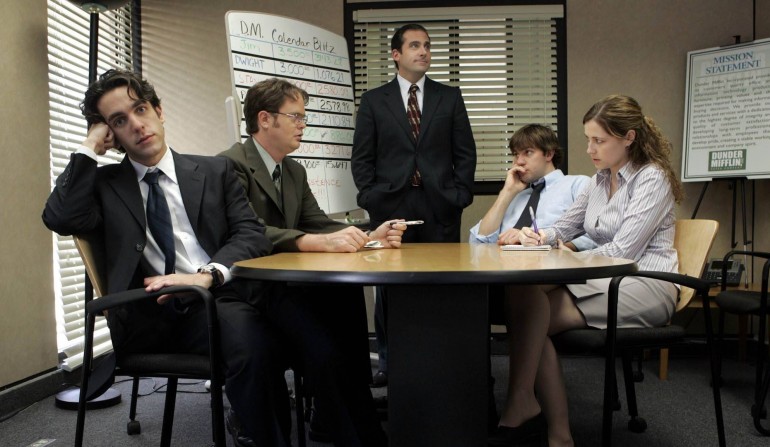To borrow a phrase from Dolly Parton “if you want the rainbow, you’ve got to put up with the rain.” You can’t celebrate the good times if there aren’t bad (or at least less good) times along with it. However, leaders need to pay close attention to the culture of their work environment and address when it starts to turn unhealthy and unpleasant. A bad culture will obliterate staff retention and will make the office environment intolerable for many of your staff. Those who persist over time become a part of the problem. Team efficiency and personal productivity are deeply impacted.
Sometimes the writing is on the wall. Sometimes the signs are more subtle. Here are some things to look out for and help identify a bad culture:
“My way or the highway”: Your manager will tell you to do something followed by the phrase “because I said so.” There are leaders that inspire you and impart knowledge. They give you the why along with the how. Then, there are those that want things done and don’t have time to tell you either how or why. Don’t work for these people.
Stick is favored to the carrot: If your first thought is “what’s the boss going to say” rather than “how can I rectify this” then chances are you’re working in a culture of fear. This goes for a culture where empathy’s lacking too. Your job’s a big part of your life. If either one of them isn’t great then it’ll affect the other.
New starters come and go, like the wind: When a new employee joins your company there should be some excitement, or at least notification to say a new member of staff’s joined the team. The management, who have faith in you, has seen something in them too. I’m not saying there should be a parade and the floor lined with and flowers on arrival. But you should at least be introduced and made aware of this new starter’s capability and background. This goes for people leaving too. If there’s a revolving door and someone leaves your business without you knowing or even realizing, there’s probably something fundamentally amiss.
Exit reasons are misconstrued: When someone leaves, people talk. If someone leaves and the management create a fabricated reason for someone’s exit, it screams desperation and a broken culture. People leave businesses. It happens…and they do it for lots of reasons. Being honest about it will rarely create ill feeling. Lying about it often will. And undermines the intelligence of people who know the truth, which will be most people.
Small things outweigh the large: What do your internal meetings consist of? Is it someone in the office flouting the ‘facial hair guidelines?’ Is it someone who was five minutes late twice last week? Or is it how to make the company, culture or performance better? It should be the latter. If the small things in your company get more airtime than the big things, that’s not positive. This also goes for managers who love to point out you’re five minutes late in the morning, but don’t tend to notice you at your desk until 6pm the night before.
There’s no buzz: There should however be somewhat of a buzz, an energy, about the place. The kind of buzz that happens organically where people are happy to be somewhere and enjoying the day. Look around your office right now. Can you see people smiling? You’re in that office for the largest part of your week/month/year/life. Don’t surround yourself with unhappy people.
No one socializes outside of work: You won’t be friends with everyone you meet at work but there should be a large amount of people you get on with in your company. If going for a beer with your colleagues after work sounds like hell on earth, you’ve got the wrong colleagues.
The ping pong table in the break room provides the pièce de résistance: Firstly, ping pong is awesome but it shouldn’t be the only thing that’s awesome about your company culture. You don’t fix a poor company culture by getting a ping pong table in the office. It will help, but it should be accentuating an already excellent culture. Having a Ping-Pong table is fine; bragging about one is not. Why? The corporate world has somehow equated owning one with having a fun loving-culture. If your potential employers emphasize theirs, it may be a sign they’re checking off boxes rather than giving their employees what they really want
The place is a dump: Whenever I walk into an office, I look along sightlines. If I see boxes sitting in the aisles and chairs piled up in meeting rooms, I know no one cares about the place. And there is probably a good reason why.
Only the leaders have offices: We’re always leery of a place where everyone has a cube except for the bosses. That usually indicates a hierarchical structure in which management and employees are at odds.
No one talks about culture: Companies should try to sell you on their culture. If the person interviewing you only wants to talk about your qualifications, ask yourself what she’s not telling you about the work environment.
The above list may make you think “this sounds nothing like where I work.” If however you’re thinking “this actually sounds very familiar” then you need a change. If you are a leader in your organization, consider a team building event with EPIC Adventures. We will work with you to develop a unique program targeted to fit the specific needs and strengths of your team. Don’t settle for a bad culture, CHANGE IT!

